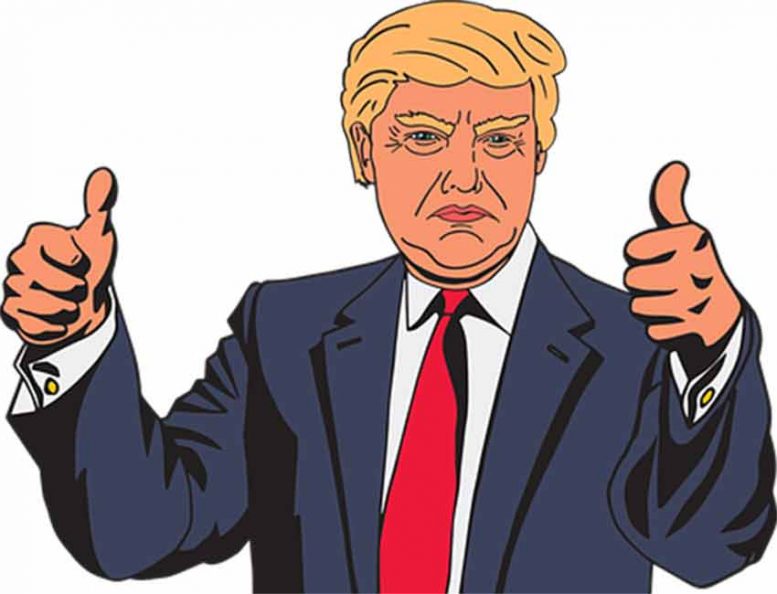- Your cart is empty
- Continue Shopping
Politicians Embracing Marijuana

What’s up with politicians suddenly embracing marijuana?
Even President Trump is hopping on the 4/20 bandwagon
It’s not just because it’s 4/20 – though that contributed to at least one major senator’s announcement that he’s come around to the idea of decriminalizing marijuana. Marijuana legalization advocates say they’ve had the best week in Washington since, well, ever. And it’s thanks to politicians on both sides, including the president, suddenly embracing efforts to help even more states legalize marijuana. “I think we reached critical mass among the population years ago,” said Don Murphy, the director of conservative outreach for Marijuana Policy Project, “but I think we are finally reaching critical mass on Capitol Hill now.” Consider: Senate Minority Leader Charles Schumer, D-N.Y., announced Friday that he’s decided to support decriminalizing marijuana at the federal level and will advocate for bills to help marijuana businesses (no pun intended) grow. Schumer cited an “evolved thinking – both personally and by the nation” for his switch. As The Post’s David Weigel writes: “It’s the first time that a leader of either party in Congress has endorsed a rollback of one of the country’s oldest drug laws.”
Last Friday, President Donald Trump promised a top Senate Republican from Colorado that he’ll protect states that have legalized marijuana. That’s in stark contrast to what Trump’s attorney general did earlier this year by rolling back Obama-era protections allowing states to create their own marijuana laws without fear of prosecution from the federal government. (The federal government says marijuana is illegal.) Trump’s position on reconciling the different laws was vague before this.
This week, the House of Representatives held one of its first hearings ever on legislation to roll back medical marijuana regulations. And last week, former Republican House Speaker John Boehner pulled a stunning 180 from his days in Congress and announced that he’d joined a board of directors for a cannabis company. Boehner had once said he was “unalterably opposed” to decriminalizing marijuana because it would lead to more people abusing it, alcohol and other drugs. Legalization advocates say there’s no one thing that happened recently to spark these politicians to suddenly switch from their long-entrenched views. But there is plenty of evidence of states and public opinion moving, rather rapidly, in favor of marijuana legalization, and perhaps the politicians in Washington are finally taking notice. All but two states have laws on the books at least recognizing the value of medical marijuana. Medical marijuana is legal in 29 states. Recreational marijuana is legal in nine states and the District of Columbia, and advocates are optimistic that that number could double by the 2020 presidential election. An October Gallup poll found record-high support for legalizing marijuana, including among Republicans (51 percent). Seventy-two percent of Democrats supported it and 64 percent of all Americans.
“The politics of it are making more sense every day,” Murphy said, “even among Republicans.”
In Michigan, Republican lawmakers are considering legalizing recreational marijuana rather than letting an initiative that’s gaining steam make the ballot this fall. GOP lawmakers fear the ballot measure would boost Democratic turnout in November, reports the Detroit News. That would make Michigan only the second state to legalize marijuana by the legislature, after Vermont did so earlier this year. That bill was signed by a Republican governor, Phil Scott. In fall, voters in Oklahoma and Utah will consider marijuana measures. In 2016, voters in Arkansas, North Dakota and Florida overwhelmingly approved medical marijuana legalization. Those are all states Trump won. It’s probably less of a surprise that Democratic gubernatorial and attorney general candidates are practically tripping over themselves to support marijuana legalization, said Karen O’Keefe with Marijuana Policy Project. In Schumer’s home state of New York, Gov. Andrew Cuomo, a Democrat, is facing a primary challenger, Cynthia Nixon, who has made marijuana legalization a central feature of her campaign. Cuomo initiated a statewide study this year on what legalizing marijuana would mean for New York. Of course, not everyone in Washington suddenly wants to see pot legalized everywhere. On Friday, to counter the 4/20 programming, Smart Approaches to Marijuana held a news conference in downtown Washington to reiterate its opposition to marijuana legalization. The group’s director, Kevin Sabet, said they’ll be ramping up their federal lobbying efforts and will soon call on support from families suffering from the national opioid crisis, “80 percent of whom will tell you marijuana had a role to play.” “We can’t take it for granted anymore” that politicians will reject marijuana legalization, Sabet said in an interview with The Washington Post, “but we also don’t think it’s inevitable.” But they appear to be fighting a losing battle at the moment. Election-year politics can never be entirely separated from politicians’ decisions. It’s possible Schumer is watching what’s happening in his home state and the overwhelming support for legalization within his own party, and decided that backing marijuana could boost the chances of Democrats taking back the Senate this November. Whatever the reason, O’Keefe said, “we’re seeing politicians’ evolution on this issue quickly.” So quickly, apparently, that even the glacial-paced Washington is starting to take notice. The Next Legal Hurdle for Cannabis will be getting the feds to understand the states they represent

